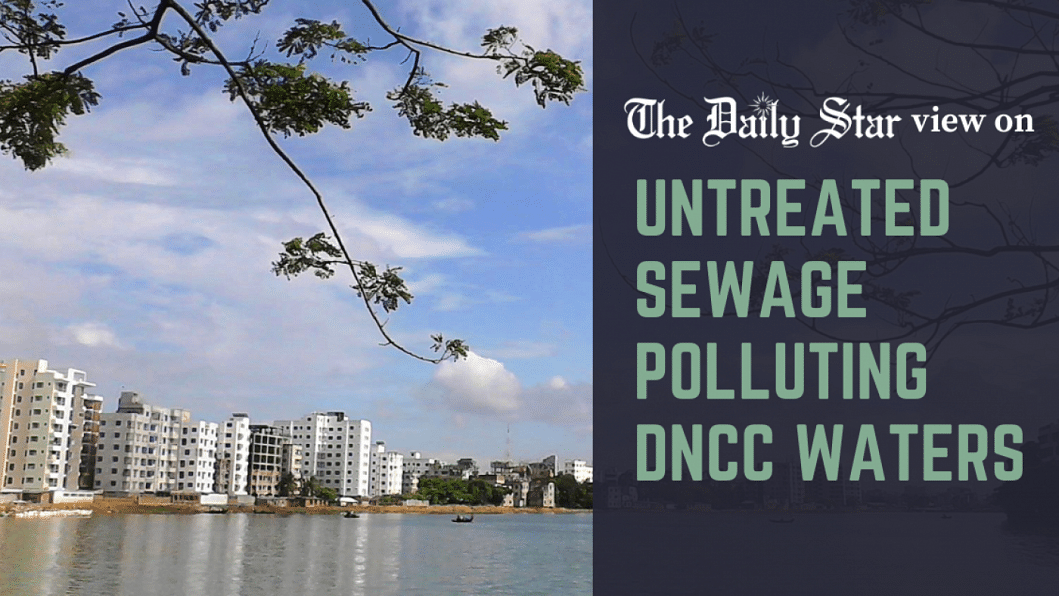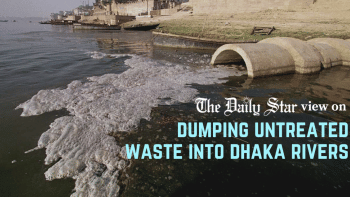Stop polluting waters with untreated sewage

It is quite frustrating to learn that sewage from Dhaka's posh residential areas such as Gulshan, Baridhara, Banani and Niketan is landing, untreated, into nearby lakes and other water bodies as well as the open drains of Dhaka North City Corporation (DNCC), with Dhaka Wasa taking hardly any action to prevent it. There is no proper sewage management system in these neighbourhoods. According to a report by Prothom Alo, the DNCC mayor has launched drives in these areas against those responsible for polluting water bodies. Reportedly, the DNCC cleaning staff has stopped some illegal sewer connections temporarily by shoving banana trunks into the pipes. While the mayor deserves our support for taking some action against the law-breaking building owners of the areas, we need to look at the broader picture to fix the problem permanently.
Building owners, of course, are primarily to blame for the pollution of water bodies, but the main culprit is Dhaka Wasa, the agency responsible for taking care of the city's overall sewage management system. Reportedly, Wasa has been regularly charging sewer bills from city residents without providing them any service in this regard. As reported in the media, between FY 2018-19 and FY 2020-21, it collected Tk 1,066 crore from the residents for sewage treatment. While it took some projects to improve Dhaka's sewage management networks, we still do not know of any visible progress being made in this regard.
A Prothom Alo report from last year revealed how the sewage system of Dhaka has completely broken down over the last decades. The report also found that in over 80 percent of city areas, there was never any proper sewage management system in place. Often the pipelines are faulty, or the required treatment plants are missing. And it is because of Wasa's inefficiency, mismanagement and irregularities that the city still does not have such a system. The result of its inefficiency has been reflected in a survey done recently among 550 houses in Baridhara. It has been found that only five of all the houses surveyed have a proper sewage system, while 342 houses have sewage connections directly leading to open drains or lakes.
In such a situation, the drives conducted by the DNCC were more than necessary. This would not only give a message to the building owners that they cannot continue polluting water bodies, but would also put pressure on Dhaka Wasa to do its job properly. In recent years, the agency and its controversial, long-time managing director were repeatedly in the news for failing to perform their mandated responsibilities. Various allegations of irregularities have also been raised against the MD for which he must answer to the public.
In simple words, Dhaka Wasa must be held accountable for its failure to prevent wholesale contamination of our water bodies. It must be made to serve the residents.


 For all latest news, follow The Daily Star's Google News channel.
For all latest news, follow The Daily Star's Google News channel. 






Comments